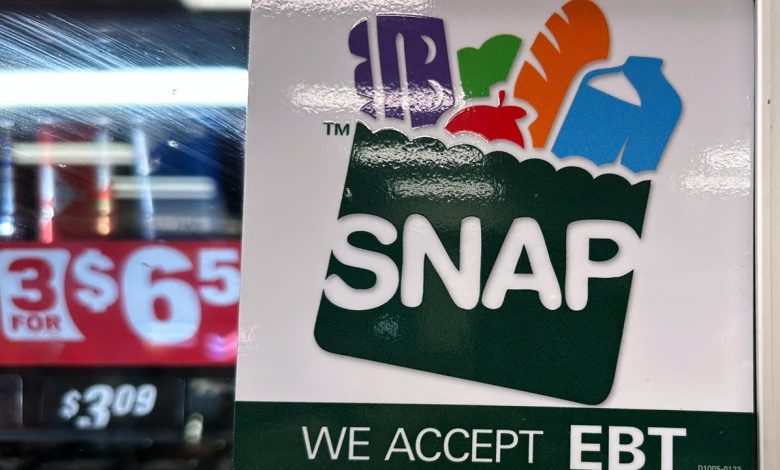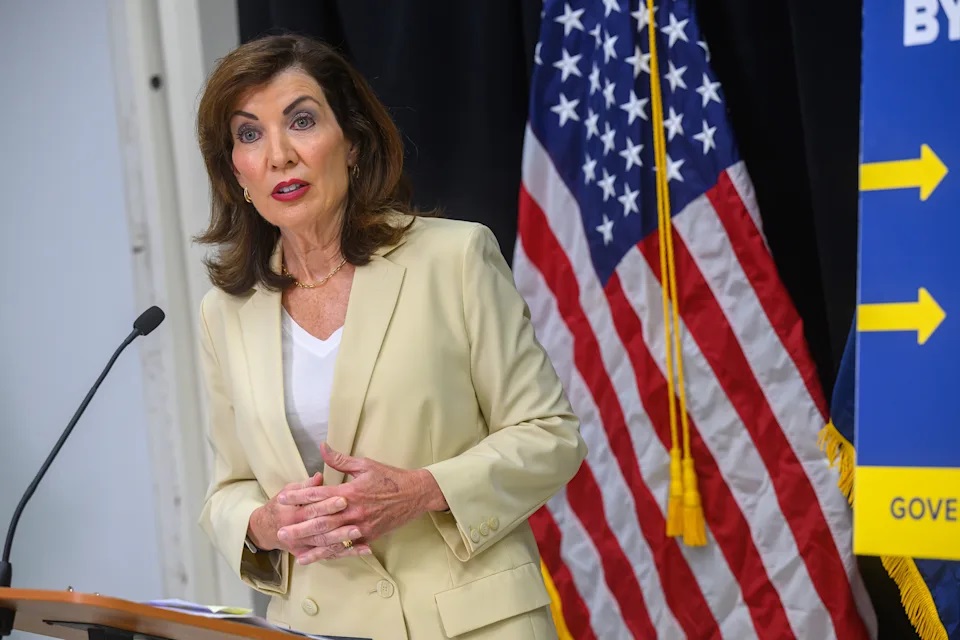New York to Restore SNAP Benefits Despite Federal Court Delays
Governor Kathy Hochul confirms the renewal of food assistance payments amid legal uncertainty and federal funding disputes impacting millions of New Yorkers.

The New York State government expects to renew Supplemental Nutrition Assistance Program (SNAP) benefits for residents who receive federal food aid, according to Governor Kathy Hochul. The announcement comes despite recent federal court interventions that caused a week-long delay and widespread confusion. The state remains committed to ensuring that these vital funds reach all eligible recipients immediately, provided the federal government upholds its prior commitments.
Hochul’s office announced Saturday that funds would begin flowing into accounts as early as Sunday, following a period of uncertainty. This assurance came even after the U.S. Supreme Court appeared to temporarily halt the distribution of federal funds on Friday evening — a decision that left millions of New Yorkers wondering about the future of their food assistance. A spokesperson for Governor Hochul said the state intends to issue SNAP payments to all New York beneficiaries by the end of the weekend, contingent on continued federal cooperation.
SNAP Funding in New York Faces New Legal Uncertainty
According to Nicolette Simmons, Hochul’s spokesperson, the state has not received direct communication from the U.S. Department of Agriculture (USDA) since the Supreme Court’s order. Nevertheless, New York continues to issue benefits using federal funds. However, the precise meaning of “maintaining the federal government’s commitment” remains unclear amid ongoing legal fluctuations across different courts.
Advocacy groups have voiced alarm over the urgency of the situation. Joel Berg, CEO of Hunger Free America, a national organization based in New York that supports SNAP beneficiaries, emphasized the need for the state to release the benefits without delay. Berg warned that the federal government’s administrative disruption of SNAP has worsened the existing hunger crisis, fueling “fear, anxiety, and anger” among recipients.
The latest legal saga began Thursday, when a federal judge in Rhode Island ordered the administration to fully fund SNAP and release program money to states by Friday. The federal government immediately appealed to the First Circuit Court of Appeals, which agreed to review the case but declined to pause payments in the meantime.
Governor Hochul had earlier told New Yorkers that benefits would resume over the weekend, but later that evening, Justice Ketanji Brown Jackson of the Supreme Court issued a temporary stay to give the appellate court more time to decide whether to grant a longer delay — again leaving millions in financial uncertainty. Hochul’s office confirmed it is continuously monitoring the evolving situation.

Hochul Blasts Supreme Court SNAP Delay as “Cruel”
Given the uncertainty, advocates for food-insecure New Yorkers had urged the state to use its own funds to cover November SNAP benefits if federal money remained frozen. In a video released Saturday afternoon, Governor Hochul criticized the administration’s decision to escalate the case to the Supreme Court as “cruel” and “misguided.” However, the video offered no direct update for confused residents about whether their funds would be available on Sunday.
Neighboring New Jersey presented a different picture. Officials there confirmed that full November SNAP funding had already been distributed to roughly 800,000 residents before the Supreme Court order. Those benefits are currently available through EBT cards, though state officials cautioned that it remains uncertain whether the USDA will allow additional withdrawals of federal funds moving forward. Residents were advised to check their EBT balances and use benefits as needed while monitoring developments.
Adding to the complexity, U.S. Agriculture Secretary Brooke Rollins, in a national television interview, blamed Congress for the entire impasse, saying:“The executive branch draws its funding from the legislative branch. We cannot simply create money out of thin air — that’s not how the United States operates.”
However, multiple court rulings have repeatedly contradicted this argument, affirming that emergency funding mechanisms exist for precisely such crises and ordering the federal government to make the funds available to struggling families. The ongoing legal and political standoff underscores the profound impact on vulnerable populations that depend on these essential food benefits.



